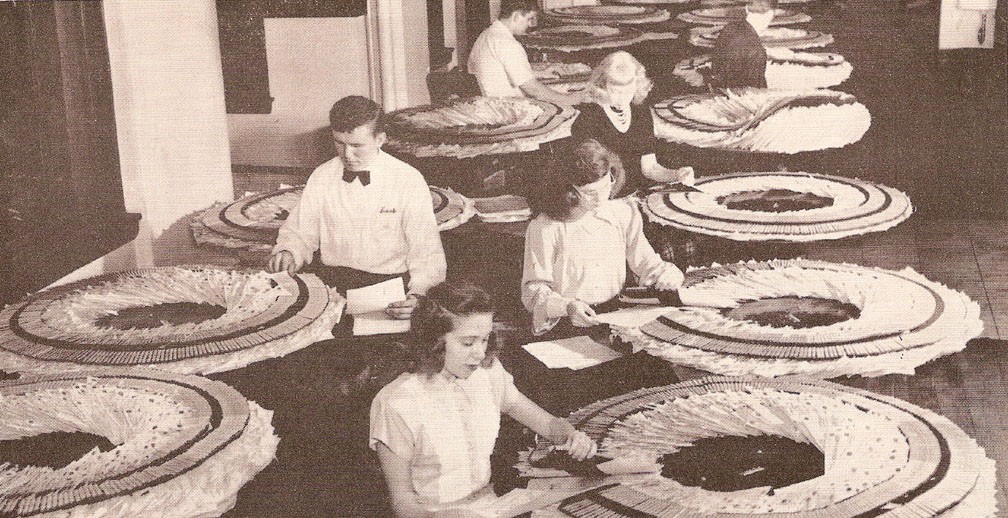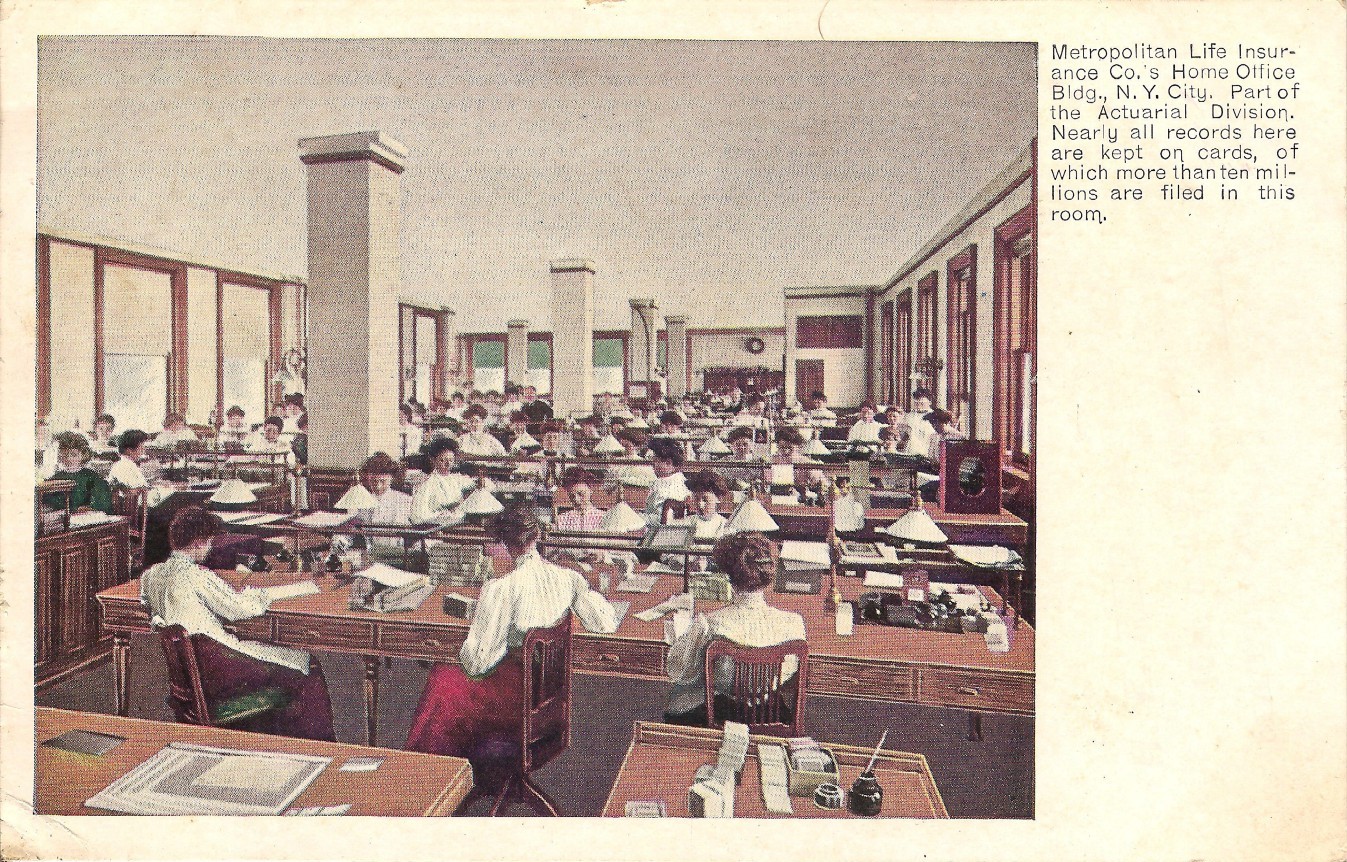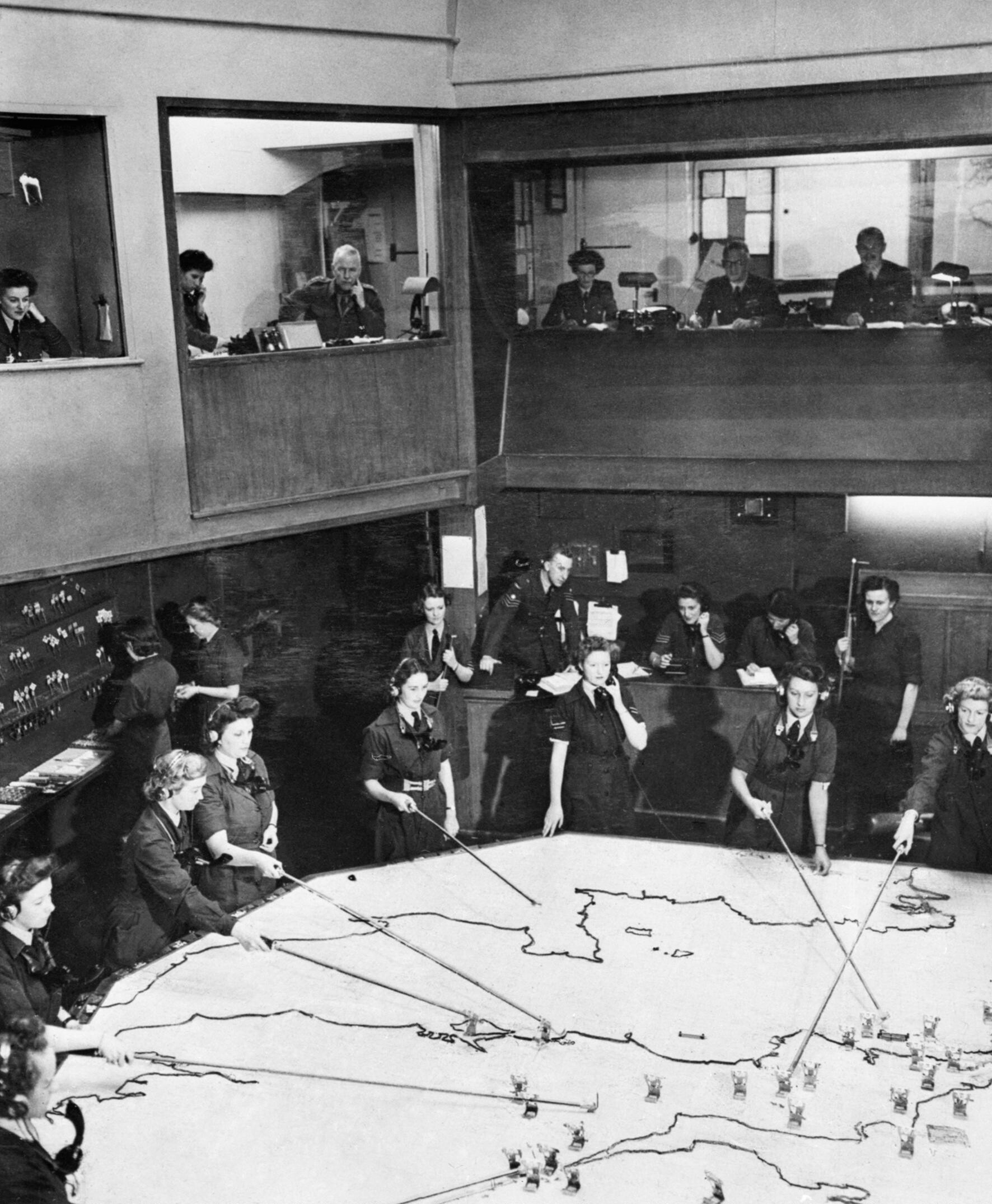Notes: About Databases...
Talking about 6000 years is not a case of "the old ways were better," but that business fundamentals remain the same.
Perhaps we've all become a bit dazzled by the technology.
Databases come in different flavors.
Database science is heavy on theory and research, but much business software development runs down a fairly narrow channel, putting standardized relational databases at the center while forms and reports for the users are tacked on for access.
Early computer development faced challenges in storing large amounts of data and getting it out again. The solution was relational databases; they store and query data efficiently, but at the cost of often rigid architecure. These databases are not optimized for business, only for fast query response.
Banks, stock-traders, power grids, air traffic contollers, media-on-demand businesses all have high-performance query response requirements.
Large businesses get around rigid database architecture by having large IT teams; they continually change the architecture—manually—so in fact relational database architecture is highly labor-intensive but flexible if you can afford the staff .
Most medium or small businesses have different requirements:
- They need flexible architecture to meet changing demands,
- they can't afford an IT staff,
- they need an intuitive software interface so they can devote time to their business rather than mastering complex technology,
- and they don't need complex micro-second fast query response: an end-of-month sales report that takes 5 seconds rather than 0.1 second is really not a problem.
Managing medium and small businesses—and according to this article, Systems before computers had better database technology, maybe even large businesses—is about forms and reports.
Here is a remarkable photo from the article referenced above. Innovative solutions handled unique requirements.
You don't need a computer to be brilliant.

In 1904 Metropolitan Life in New York had over 10 million subscribers.
It was labor intensive, but there were few mistakes.
(Side note for anyone inteseted in design: No overhead lighting. Individual desk lamps. Many windows provide maximum natural lighting. )

The cards in the filing cabinets and papers on the tables are forms and reports.
They are a database, meaning a coordinated system of information, but it was not a relational database as developed by modern computer science.
The non-computerized data management systems behind 10 million index cards would have been impressive. Common human error could mis-file cards which would then be lost forever. There must have been systems to prevent, detect, and recover from such errors.

Fundamentals remain, details change.
Sumer uses a relational SQL database in a way that maximizes flexibililty, but the data is defined and given meaning solely by forms and reports. This puts the managers' concepts at the heart of the business—in contrast to static relational tables that define a rigid data architecture.
Sumer has 'capabililities' that can handle the details using entirely soft-code parameters. Nothing is hard-coded into any form that requires—for instance—a 'workflow', a term often found in no-code. Entry forms can post to inventory or accounting if given proper parameters, but there is no built-in procedure requiring it.
Putting the forms and reports at the center means that businesses can change working methods instantly whenever necessary just by changing the form or report.
Interesting case: the December 2022 Southwest Airlines debacle
What a mess: severe weather during the Christmas holidays caused transportation disaster across the U.S., with Southwest Airlines at center stage.
Southwest Airlines cancellation rates were 70% on Monday (26 December), 60% on Tuesday. American, Delta, United, and JetBlue airlines had cancellation rates of 0 to 2%.
Of the 2,890 flight cancellations on Tuesday, 2,522 were by Southwest.
From an article Southwest Pilot Union Says Outdated Software—Not Weather—Led To ‘Catastrophic' Meltdown by NBCChicago:
According to Captain Michael Santoro, Vice President of Southwest Airlines Pilot Association, while severe weather was the catalyst, it was "vastly outdated" IT infrastructure and scheduling system that's different from other carriers that led to the meltdown.
"We fly a point-to-point network which can put our crews in the wrong places, without airplanes, mismatched. Our software can't keep track of it," Santoro said Tuesday, adding that the union brings up this problem yearly. "They never update it. They never invest the money and resources they need to. So, we continue to have these issues."
So who provides Southwest's software?
An internet search 'Southwest Airlines software' brings up some perplexing answers.
Statements from Southwest Airlines unions about outdated IT contradict statements from Southwest Airlines management and software providers claiming they had installed the latest advanced systems.
-
Optym’s SkyMAX Software Deployed by Southwest Airlines, website dated 2022.
Southwest first deployed Optym's SkyMAX in 2015, and announced a major upgrade with Optym's SkySuite in 2018.
Dallas, TX – Optym is pleased to announce that Southwest Airlines has begun testing SkyMAX to optimize the carrier’s future flight schedules. This summer, Southwest Airlines will operate more than 3,800 flights a day serving 94 destinations across the United States and six additional countries.
SkyMAX is a next-generation flight scheduling optimization system that maximizes an airline’s total network profitability while simultaneously satisfying all operational constraints. The SkyMAX system has the ability to build a flight schedule automatically from scratch or improve an existing schedule, and it is the first system that optimizes flight times, network connectivity, fleet, and aircraft routings simultaneously. SkyMAX is part of the Sky by Optym suite of network planning solutions for airlines.
Optym and Southwest worked together successfully over the past two years to deploy the SkyMAX software. With SkyMAX in production, Southwest Airlines becomes the only airline using this advanced technology to optimize efficiencies and performance in its flight schedule.
“Southwest invented everyday low fares by efficiently building our Customer Service and network – the SkyMAX technology shows great promise in helping us achieve the next level of efficiency,” said Adam Decaire, Senior Director of Network Planning & Performance at Southwest Airlines. “Optym is adaptive, agile and highly committed to refining this new tool to align with our performance goals.”
“Big achievements like these don’t happen by themselves and are the result of extensive planning, smart ideas and focused execution,” said Renzo Vaccari, Vice President of Airline Solutions for Optym. “Working together over the last three months, we were able to test, calibrate and implement SkyMAX successfully. I want to thank everyone on the Southwest and Optym teams for making this happen. Everything is impossible until somebody does it.”
-
Southwest Airlines takes off with IFS dated April 26, 2022
Southwest Airlines has deployed IFS as its enterprise maintenance management standard to optimize operational performance by safeguarding aircraft reliability and availability.
IFS is now live across the airline’s total fleet of almost 730 aircraft, including the Boeings 737-700, 737-800 and 737 MAX 8. Servicing over 100 destinations, Southwest is the largest domestic carrier by enplanements in the US.
The airline has undertaken the initiative to replace multiple legacy maintenance and compliance systems to harmonize mission critical processes into a single IFS solution. This solution will allow the company to stay true and focused on its principles of quality and compliance while further modernizing its processes.
IFS will provide Southwest maintenance personnel the information needed to streamline configuration control and compliance management processes, while additional insights delivered by the solution will drive an efficient process, enabling a mobile user experience. The digitization of process is also positively impacting compliance by providing real-time validation at the point of maintenance.
Southwest becomes the latest airline to deploy IFS, alongside Air France-KLM Group, China Airlines, LATAM Airlines, Qantas, and more.
Scott Helmer, IFS president of aerospace and defence, said: “Southwest is an innovator among the world’s airlines and this milestone achievement speaks to the company’s ambition and commitment to excellence. Throughout this project, IFS has demonstrated an ability to handle the scale and volumetrics of the world’s largest airlines and was subjected to load testing that simulated a fleet of 1,000 aircraft. I am delighted that again IFS commitment to this industry is acknowledged with Southwest’s choice; it is now well positioned to continue its industry leadership delivering world-class moments of services for its customers.”
-
Southwest Airlines maintains on-time flights and optimizes fleet performance with Tableau website dated 2003 - 2022
With more than 700 aircraft operating at least 4,000 daily flights, Southwest Airlines is the largest carrier of domestic passengers in the U.S. The airline captures data throughout their operations, from planes, airports, customers, crew members, and maintenance.
Previously, to understand their fleet performance, Southwest’s IT team manually pulled data from legacy systems and various sources, including Access, Excel, Oracle, SQL Server, and Teradata, its enterprise data warehouse. With 28 different departments generating and analyzing different data, information was fractured, making it difficult to get a complete picture of their performance. To complicate matters, not everyone had access to the same data, triggering different perspectives and confusion at times.
The IT team selected Tableau to enable a culture of self-service analytics at scale and provide a secure environment to explore trusted data, bringing everyone on the same page. Tableau has connected the dots—from maintenance and finance to customer service —and real-time insights are driving efficiencies and casting light on opportunities, like where to add routes or how to reduce gate wait times.
Southwest now uses Tableau to capture and engage with the data needed to maintain excellent performance and ensure passengers have successful journeys. Through organic growth, they've scaled from three to 2,900 active Tableau users across 36 departments.
Clearly, it's difficult
There could be some puffery here, but taking Southwest management and software providers at their word, they believed they were well prepared. When it came to the crunch, however, the systems failed.
Interestingly, according to this Southwest Airlines media site, CEO Bob Jordan began his career at Southwest Airlines 35 years ago as a programmer in the Technology department. So...it's not like they were clueless.
Complex versus agile systems
Here is how it was done in World War II.

WAAF plotters move plane markers around on the map board while senior WAAF and RAF officers consult in the gallery above.
Obviously no one could run an airline like this now. Complex computerized database systems are absolutely necessary. But creating and installing and training for a new system can take an army of IT specialists and programmers a year or more.
If a system is a poor choice, there is no way to know until it breaks. If it fails, it will be difficult to change quickly.
The advantage of the WAAF / RAF solution was that when it broke, it was obvious, and new solutions could be developed and applied instantly.
Lessons for Sumer
Southwest Airlines is a large business with over 66,000 employees and 770 airplanes, It is way out of Sumer's league. But the Size and Survivial page brings up the issue of 'nimble competitors'.
Large businesses are vulnerable. Note the line in Tableau's statement above that " Southwest’s IT team manually pulled data from legacy systems and various sources, including Access, Excel, Oracle, SQL Server, and Teradata " prior to using Tableau. But it is not at all clear whether Tableau itself had any role in Southwest's Christmas meltdown.
It is common for large companies to have a variety of mismatched ad-hoc systems developed independently in various departments. The managers who designed the systems knew exactly what they needed and the solutions usually work well on the department level.
It is also common for large companies to try to improve internal communication by pulling all the data into a new centralized system. That can cause trouble because IT programmers don't always understand the real needs of the departments. Management expertise can be lost. Departments that once worked well on their own can be dragged down by wider system failures.
Large business systems are powerful but ponderous. If they start doing something well they can steamroller smaller competitors. And they can get away with inefficiencies because of their sheer size and budget, especially if the departments are not mission-critical to the core business.
The WAAF / RAF solution was nimble. Medium and small businesses can be nimble if managers are able to immediately adjust their business methods as they see the need. But with a smaller staff, inefficiencies in smaller businesses have a larger impact than they would have in a large business because of the stress load they put on management.
This is where Sumer comes in. Sumer does not require IT professionals to set up and change. Sales, inventory, accounting, scheduling, employee hours, and more can all be easily centralized and customized for maximum efficiency by the managers themselves, the system can be updated in small agile steps as ready, and any solution can be changed by the managers immediately as needed.